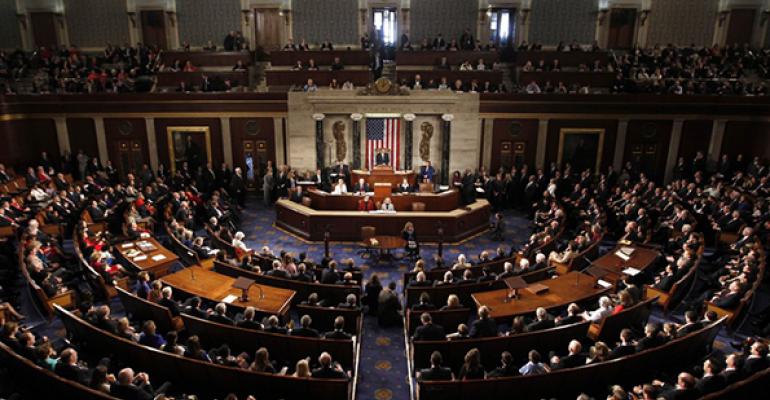U.S. Congressman Hakeem Jeffries has good news for the affordable housing business—and anyone worried about the shortage of affordable housing nationwide. When Democrats take control of the U.S. House of Representatives on Jan. 3, “the federal government will be back in the business of affordable housing,” said Rep. Jeffries (D-NY 8) during the New York Housing Conference (NYDC), held in New York City on Dec. 4.
Much of the focus at the event was on Washington, D.C., where the results of the November 2018 election will give Democrats like Jeffries a new opportunity to fight for their legislative priorities. Affordable housing is near the top of the list—and Jeffries had a particular promise to make for public housing.
“We are going to fight to make sure that in any infrastructure plan that we pass, at least $70 billion will [be] set aside to modernize and rehabilitate, meet the unmet capital needs of public housing developments across the nation,” said Rep. Jeffries.
The congressman also pledged to fight to strengthen the federal low-income housing tax credits offerings, Sec. 202 and Sec. 8 voucher program.
Federal action to come
The pledge by Rep. Jeffries comes after a surprisingly good year for the affordable housing industry. Twelve months ago, lawmakers in Congress considered proposals to curtail or shut down some of the most important federal programs to build and renovate affordable housing. That included the massive reform of the federal tax code. The administration of President Donald Trump also proposed to eliminate federal programs like HOME and the Community Development Block Grants and cut the funding for capital repairs at public housing down to zero.
Instead, the Republican-led Congress voted to expand the LIHTC program and increase the budget for the Dept. of Housing and Urban Development (HUD).
“Who would have thought that was possible?” said David Dworkin, president and CEO of the National Housing Conference, speaking at a morning panel at the event. “We had never gotten that size of increase to the HUD budget in that time period.”
That success has given advocates for affordable housing new confidence, though the Trump Administration is likely to once again propose an austere federal budget to Congress, full of ideas like its proposals last year to give zero dollars in capital repair funding to public housing.
“Advocacy works,” said Diane Yentel, president and CEO of the National Low Income Housing Coalition. Advocates like Yentel hope to use the new Democratic majority in the House of Representatives to press for new funding for affordable housing—though any new spending will have be paid for with some new income.
“Under the Budget Control Act, they have minimal ability to propose new ideas,” said Yentel. “We are back under the really tight spending caps that we were under previously.”
Advocates vow to fight the decay of public housing
Rep. Jeffries promise to fight for public housing reflects a top priority for housing advocates.
That’s especially true in New York, where public housing is once again in the news. Heating systems failed for thousands of public housing residents over Thanksgiving weekend. That led to another series of humiliating headlines for the troubled New York City Housing Authority.
“Now stories start coming about water not running in public housing here in New York City… that’s what $50 billion in unmet public housing capital repair needs looks like,” according to Yentel.
For decades, federal budgets written by Congress have given local housing authorities less cash than federal officials said would be enough to maintain public housing. In the last 10 years, Congress cut that already insufficient amount of federal money in half, according to Dworkin. Public housing across the country now has $50 billion in unmet capital needs, such as roofs and heating systems that need to be replaced.
“It is governmental malpractice,” said Dworkin. “If we managed our airports this way, we would have planes going down all over the country.”

